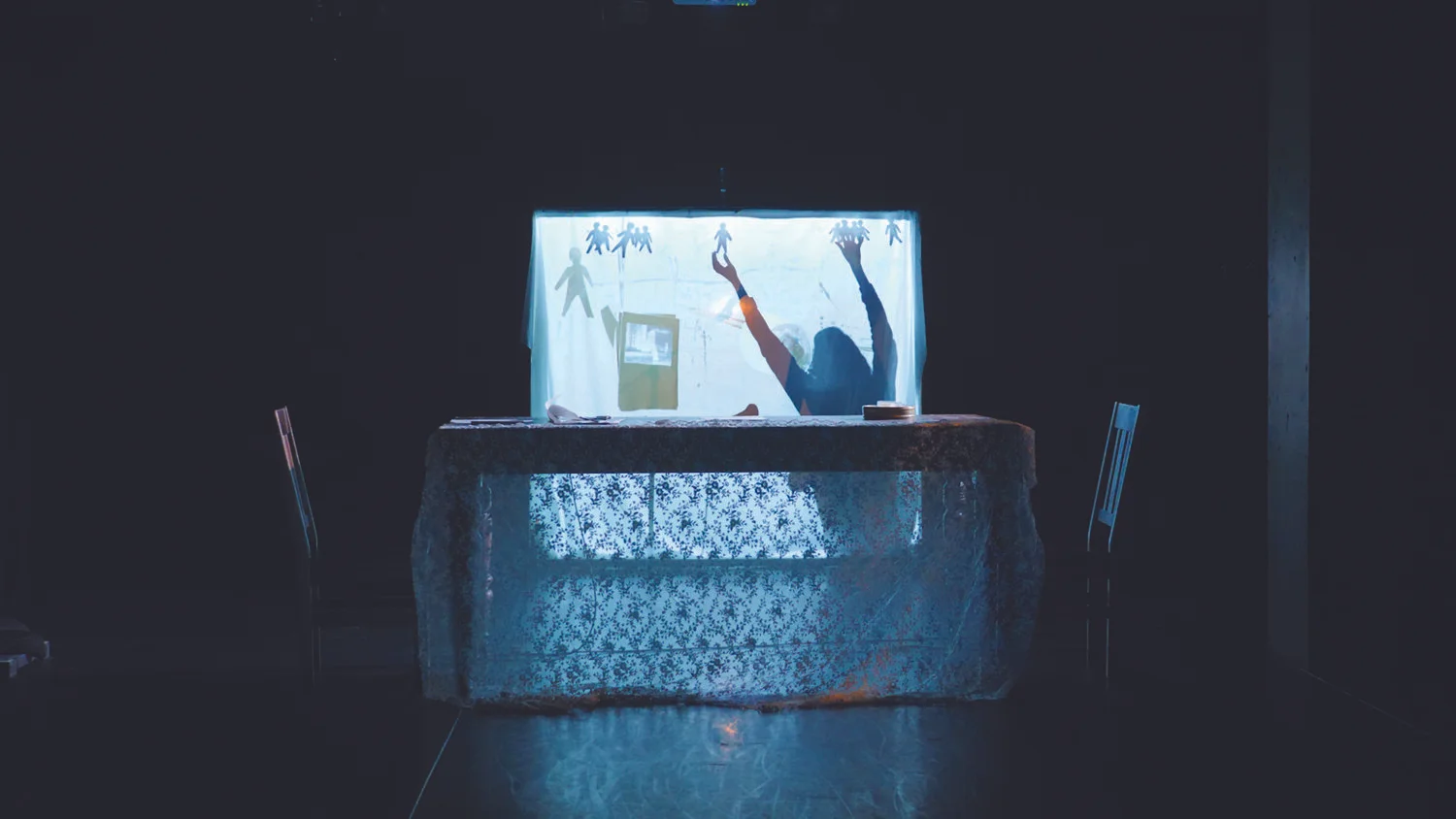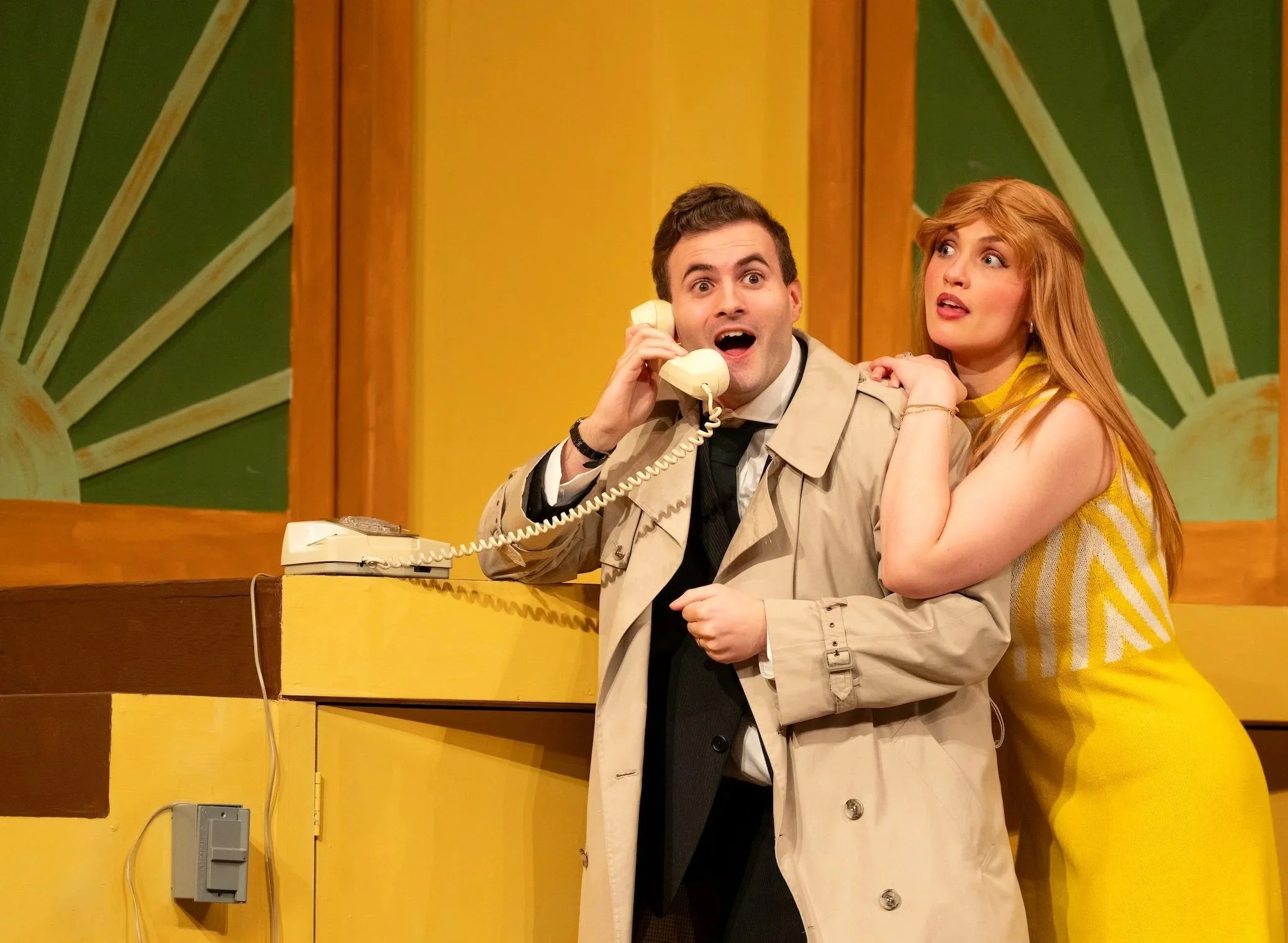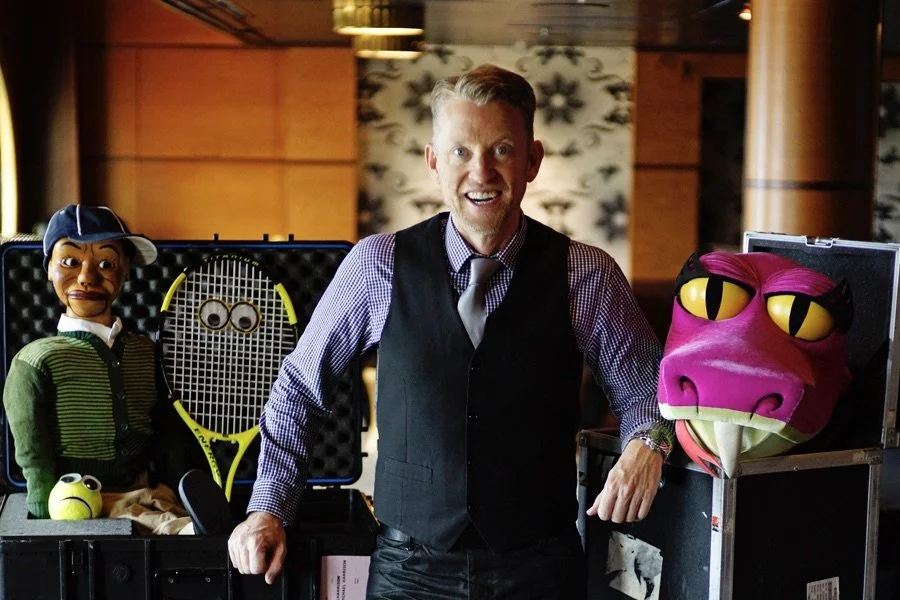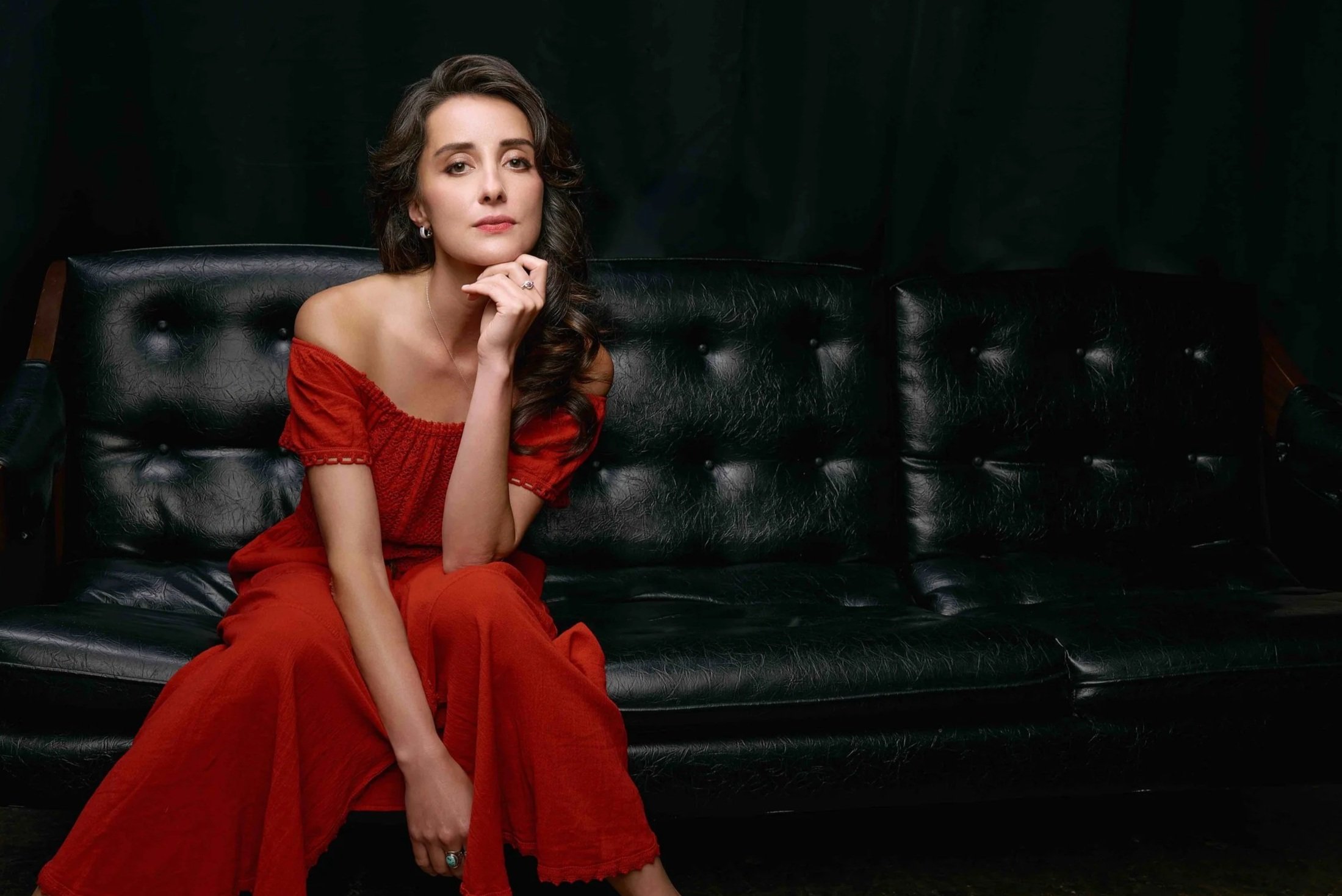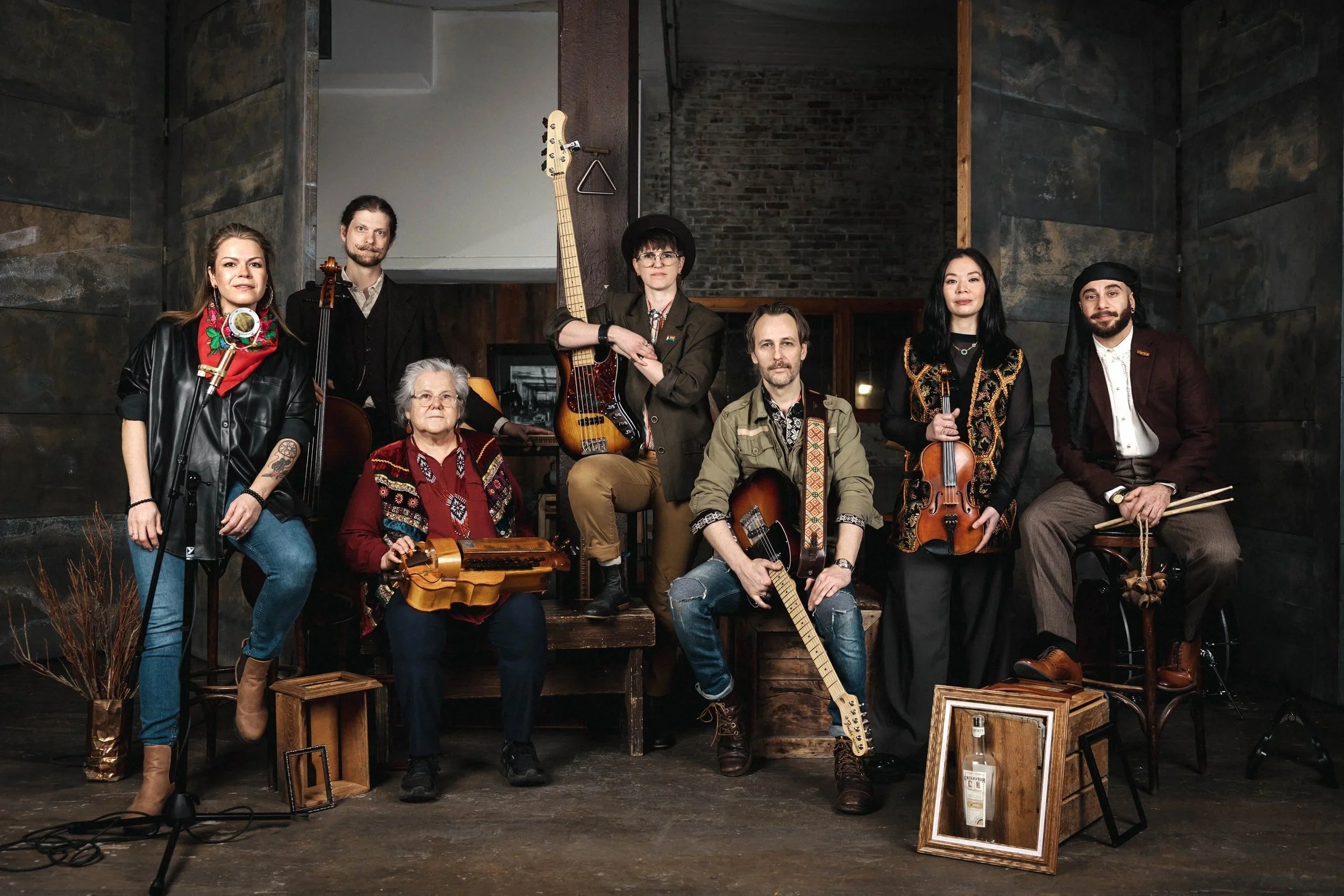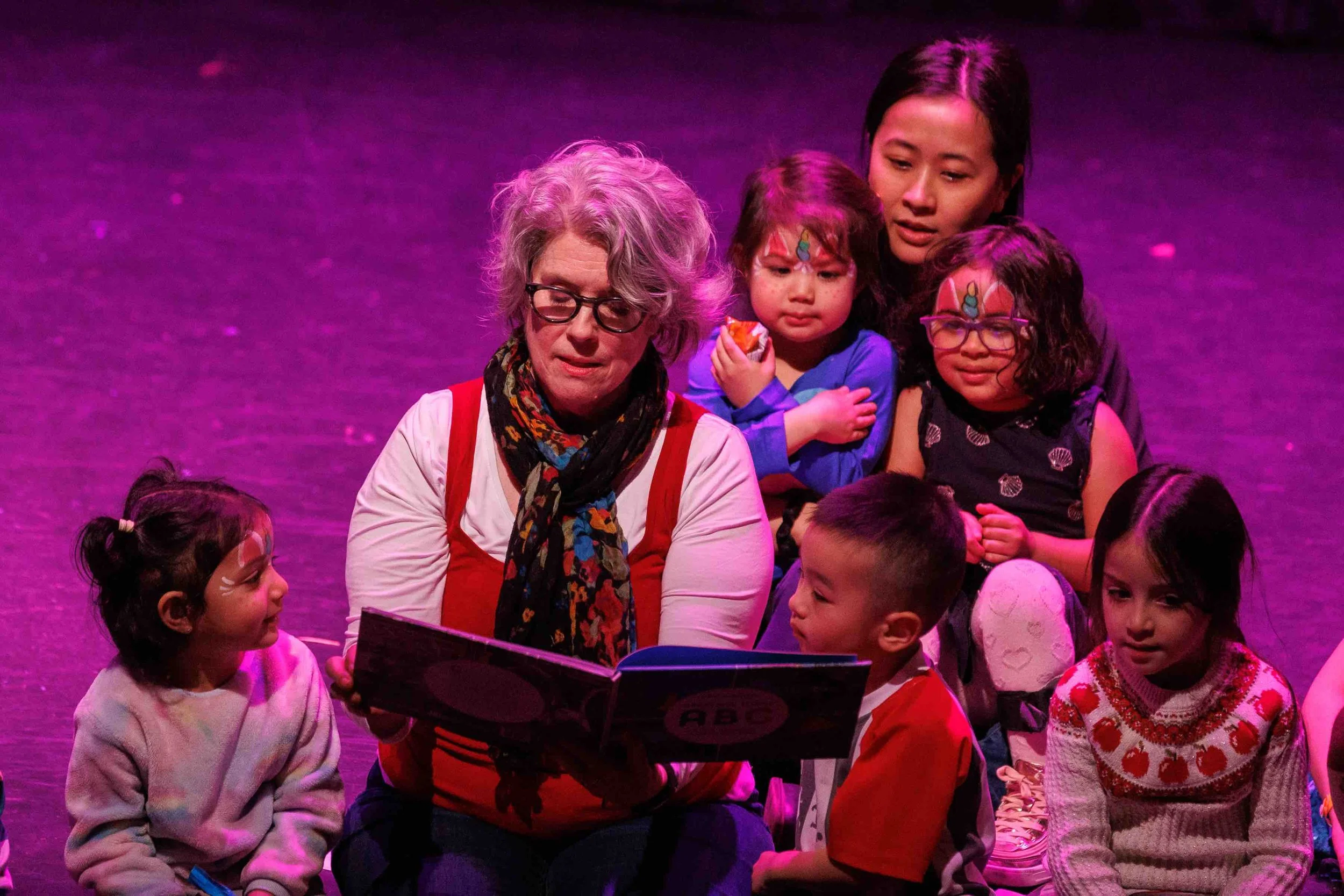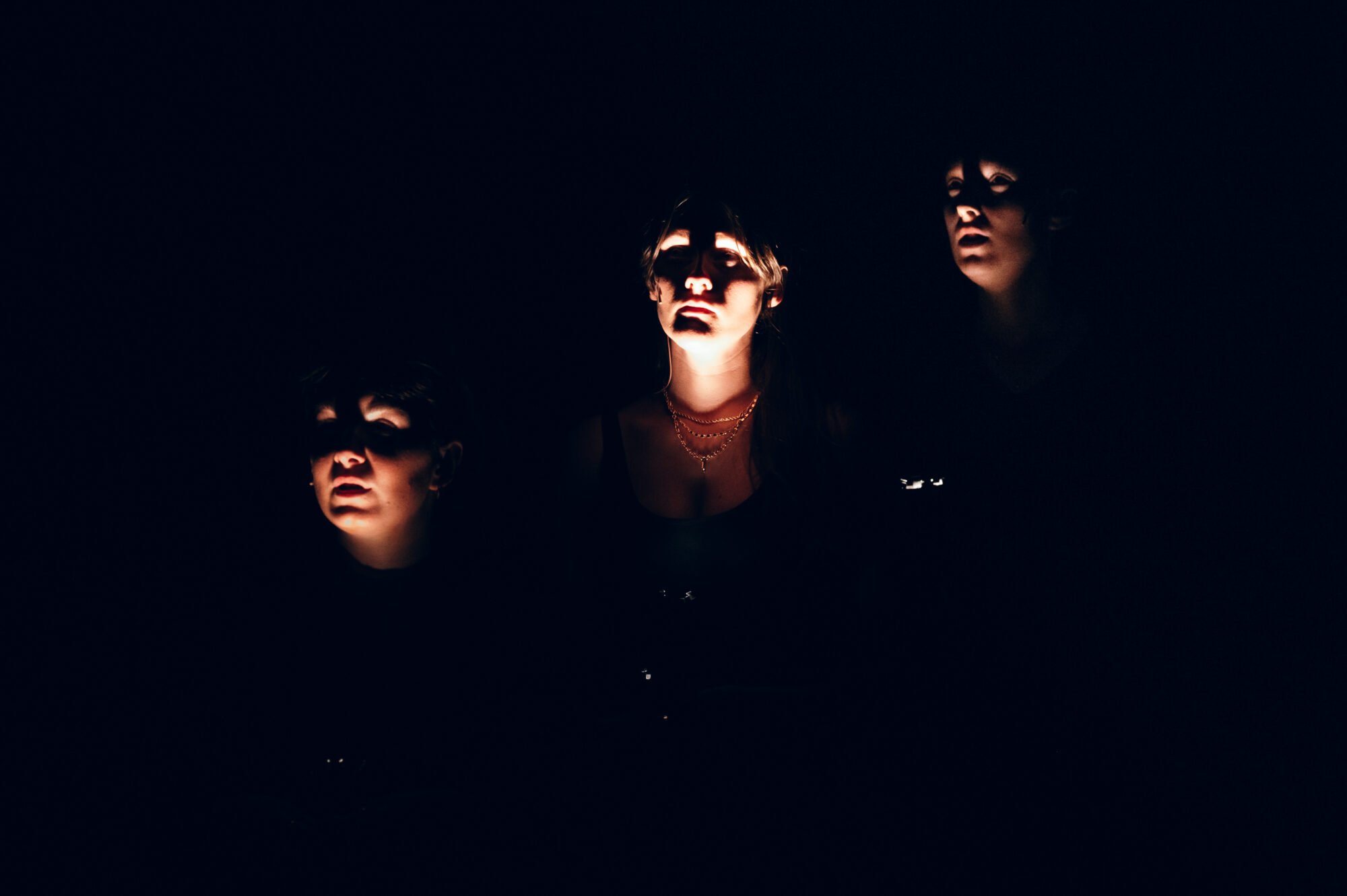Stir Q & A: Szepty/Whispers gets creative in its approach to accessibility
The new theatre piece written by Veronique West and co-produced by Rumble Theatre and V West is part of Pi Theatre’s Pi Provocateurs Series
In a dark studio space, a silhouetted performer arranges human-shaped shadow puppets behind a scrim. In front of the scrim, there is a table with two chairs and a lace tablecloth. Photo by Christian Yves Jones
Pi Theatre presents Szepty/Whispers as part of its Pi Provocateurs Series from December 1 to 3 at 7:30 pm and on December 4 at 4 pm and 7:30 pm at The Progress Lab (1422 William Street)
SZEPTY/WHISPERS, A new work written and performed by Veronique West and co-produced by Rumble Theatre and V West, experiments with a creative approach to accessibility. Some of the ways it does this is by embedding audio description into West’s lines and captions into the projection design.
West (who was featured as a Game Changer in Stir’s Fall Arts Guide 2022) self-identifies as neurodivergent, mad, chronically ill, and non-binary, while the creative team includes intersectional Deaf, disabled, mad, and neurodivergent artists.
In Szepty/Whispers, a neurodivergent artist probes their family’s silence around mental health, grappling with the risks and possibilities of disclosure. They question how factors like culture, migration, and trauma can shape generational perspectives on disability. Through personal narrative, documentary material, and inclusive multimedia design, the piece aims to find connection and bring communities together despite the lack of a shared language.
Stir connected with Szepty/Whispers director Jivesh Parasram, artistic director of Rumble Theatre, to find out more.
What drew you to this project? Why motivated you to be involved and to take on the role of director?
I was invited onto this project by Veronique West (writer/performer) and Kathleen Flaherty (dramaturge) when it was still in development with Playwrights Theatre Centre. Kathleen I'd worked with before; Veronique I hadn't, but we'd maintained a strong collegial relationship for some time.
The first time I met Veronique was in 2018, prior to moving to Vancouver and taking on my job at Rumble. I was touring a show to the rEvolver festival with my collective (the unfortunately titled) Pandemic Theatre, that I run with Tom Arthur Davis. The piece we were performing "The Only Good Indian" is a format show, one which adapts to different performers, each person makes their own version. I connected with V (Veronique) after performing my personal version of the show, which dealt heavily with a lived experience of mental illness. I think we shared a kind of affinity around the subject matter, and so when I was contacted to help out as a director I was very happy to work on it, mainly just so I could get to know the key artist (Veronique) a bit better.
Szepty/Whispers, I would learn, had been in development for a long time. And V kept making new versions of the show. The funny thing about it is that all of them were quite good! But still, it was living in a kind of eternal development process.
When V was putting together a workshop which brought together most of our current creative team in the summer of 2021, I agreed to work with them on the condition that this would be it: what we were making was gonna be working towards the premiere! No more development—we had to sign on to say "This is it!"
The reason being, new work can so easily live in what I call "development purgatory" forever. And particularly when you're looking at a solo show that deals with identity, it can so easily never premiere because our identities change. o you need to get it in front of an audience, say "this is it", because even when a show is premiered—if it continues, if it tours, if it plays again— it keeps evolving. Our medium as theatre artists is a living and breathing one, and so the most important thing for me was to encourage V to take that plunge, because their work is excellent and it's time to start sharing it publicly.
In a big way, that's how the project became a co-production with Rumble. One of the things I'm quite proud of that we do as an organization is try to push people into the spotlight—even if they're not sure that they're ready. Because they usually are, and more importantly, there's a lot of people out there who need them to be ready because they need their experiences represented in some way. For those of us whose experiences aren't really the "mainstream" story, seeing how someone else grapples with the things that keep us up at night is a type of medicine; it helps us remember that we're not alone. And that's why it also makes sense within Pi's Provocateurs series. Szepty/Whispers—it's not an "in your face" type of provocation, but in the way that V has crafted this story, and how the full creative team has helped to bring it to life, it provokes a lot of thoughts (for me at least) about who we want to be.
Can you tell us more about how Szepty/Whispers experiments with a creative approach to accessibility? Why is this important to the team?
On a very practical level, when we say "creative approach to accessibility" we're trying to be clear that the accessibility practices the show offers for audiences are not in the same as more standard protocols you might expect when you see it advertised. We want to be clear on this so that people know what they're walking into.
For example, if we were to advertise a more standard audio described performance - this might usually mean that the play would be described through an earpiece, and an audio describer (such as the folks from VocalEye) would describe what is happening on stage to people using the service. This might also be limited to one or two performances in the run of a piece.
That's not the case in what we're doing overall. So, to keep with the audio description example - we're experimenting with embedding essential descriptions of the action on stage into the piece, spoken by the performer. This way, a blind or low sighted person (or anyone else needing audio description) could come to any performance, not just a specially designated one, because the piece itself is creatively designed to include this.
By approaching access creatively, it allows us to experiment with communicating across barriers in a way that we think is in line "dramaturgically" with the story. So it's not some kind of specialized translation of what we've put together- it's attempting an inclusive performance language for the piece.
I think what makes us passionate about it, beyond this being creatively interesting, is this idea of holding a space for a larger disability community to be together. When you have one night for Blind and low vision folks, one night for Deaf folks, one night for neurodiverse folks - it kind of keeps those communities separated and this really ignores the fact that there are a lot of intersections of experience.
What have you learned in the making of Szepty/Whispers?
We were workshopping the show in the early fall, specifically focussed on accessibility and inclusion. While the show was always made with inclusion in mind, that workshop gave us the chance to really sit and talk with each other not just about what barriers to understanding were but also why they are barriers—or maybe another way of saying that is how they become barriers. How you move through the world affects how you interact with it, and that affects how you communicate, and with that, how you imagine. There is no way to standardize that. Because people are different, but instead we learn to develop keener methods of listening to one another.
What is the team's hope for what audiences glean from the show?
I think what the show is about ultimately is the distance we feel from not being able to communicate our experiences to others. Sometimes we view that as barriers we experience due to something being, if not wrong, certainly atypical about us. It’s hard "not to have the words". But I think that's okay. And I think what I love about the show, and I hope it comes across in some way to audiences is just that: it's okay not to be able to connect in the way we think we should, and there's peace in accepting that.
A major framing element of this show draws on an interview with Rachel Yehuda on Epigenetics. This is an emergent science that theorizes, and is in the process of proving, that traumas can pass through generations and potentially do change us genetically. But what's fascinating about Yehuda's research is she doesn't see that as a bad thing. Often people might want to view these things as scars, but they're not that - they are also moments that open up a greater spectrum of responses. And so, carrying intergenerational trauma—for all its complications—is maybe something that also propels us forward.


